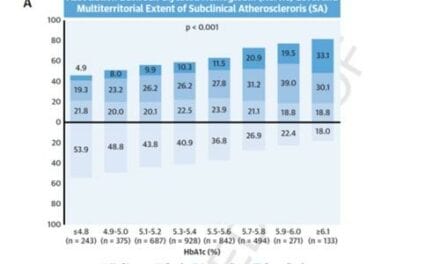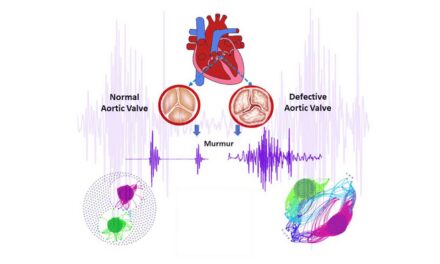CareDx, a transplant company, focused on the discovery, development, and commercialization of clinically differentiated, high-value healthcare solutions for transplant patients and caregivers, announced the publication1 of new guidelines by the International Society for Heart and Lung Transplantation (ISHLT) supporting the use of CareDx’s non-invasive molecular surveillance portfolio.
The new ISHLT guidelines support the use of CareDx’s cardiothoracic portfolio, AlloMap Heart, AlloSure Heart, and HeartCare (AlloMap Heart and AlloSure Heart). Specifically, the guidelines:
- Support the earlier use of AlloMap Heart starting at two months to five years post-transplant versus starting at six months based on strength of clinical studies.2-4
- Support AlloMap gene-expression profiling (GEP) and donor-derived cell-free DNA (dd-cfDNA) for routine post-transplant monitoring, which is new in the current guidelines and reflects increased adoption of non-invasive molecular testing in clinical practice. This includes dd-cfDNA which is new in the current guidelines.
- Support remote use of GEP and dd-cfDNA heart transplant surveillance, as in HeartCare, as it may be used to reduce the need for biopsies and hospital visits, which is new in the current guidelines, and as evidenced during the recent COVID pandemic.
“We applaud ISHLT and the sub-committee for their recognition of the value and importance of innovative, non-invasive solutions, such as AlloSure, AlloMap, and HeartCare, in managing post-heart transplant patients,” says Reg Seeto, CEO and President of CareDx. “We are proud to be the leader in this space by delivering meaningful clinical utility data and for the recognition by the global transplant community through broad adoption of these ongoing innovations.”
The new ISHLT guidelines were discussed during the April ISHLT 2022 meeting and have now been finalized, published and available online in the Journal of Heart and Lung Transplantation [JHLT].1 These guidelines are an update from the 2010 guidelines.
“A lot of innovation has occurred over the past decade with the introduction of AlloMap and AlloSure, both which have influenced clinical practice, and these are now reflected in the new ISHLT guidelines,” says Eugene DePasquale, MD, medical director of Heart Failure, Heart Transplant and MCS Program at USC. “I look forward to the long-term impact on outcomes through the incorporation of both AlloMap gene-expression profiling and AlloSure dd-cfDNA as the new standard of care, which will reduce the need for invasive biopsies with its associated risks for the benefit of patients.”
AlloMap and AlloSure Heart are used in more than 90% of the nation’s heart transplant centers and in more than 1 in 2 newly transplanted patients.5
“One of the key changes in the new ISHLT guidelines is incorporating donor-derived cell-free DNA, such as AlloSure,” says Kiran Khush, MD, professor of cardiovascular medicine and director of heart transplant research, Stanford University. “The importance of routine scheduled biomarker testing has now been captured in the new guidelines and reflects what we saw as a paradigm shift to non-invasive monitoring instead of biopsies in the heart transplant community during the COVID-pandemic.”
References:
- Velleca A, Shullo MA, Dhital K, et al. The International Society for Heart and Lung Transplantation (ISHLT) Guidelines for the Care of Heart Transplant Recipients. Journal of Heart and Lung Transplantation. S1053-2498(22)02185-4. https://doi.org/10.1016/j.healun.2022.10.015
- Kobashigawa J, Patel J, Azarbal B, et al. Randomized pilot trial of gene expression profiling versus heart biopsy in the first year after heart transplant: early invasive monitoring attenuation through gene expression trial. Circ Heart Fail. 2015 May;8(3):557-64. doi: 10.1161/CIRCHEARTFAILURE.114.001658. Epub 2015 Feb 19. PMID: 25697852.
- Grskovic M, Hiller DJ, Eubank LA, et al. Validation of a Clinical-Grade Assay to Measure Donor-Derived Cell-Free DNA in Solid Organ Transplant Recipients. J Mol Diagn. 2016 Nov;18(6):890-902. doi: 10.1016/j.jmoldx.2016.07.003. Epub 2016 Oct 7. PMID: 27727019.
- Crespo-Leiro, M.G., Stypmann, J., Schulz, U. et al. Performance of gene-expression profiling test score variability to predict future clinical events in heart transplant recipients. BMC Cardiovasc Disord. 15, 120 (2015). https://doi.org/10.1186/s12872-015-0106-1
- CareDx data on file.




